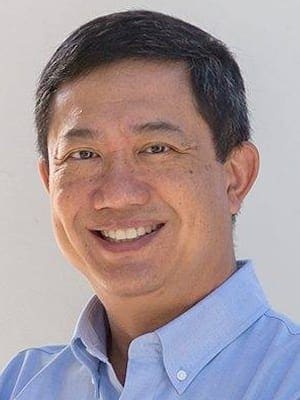Today is the first anniversary of the shooting in Charleston, South Carolina.
On June 17, 2015, nine black members of Emanuel African Methodist Episcopal Church, including Pastor Clementa Carlos Pinckney, were gunned down by a visitor during a Wednesday night Bible study.
Like many, I was horrified. My thoughts and prayers were with the victims of the families.
The following Sunday, countless congregations lifted up prayers and offered reflections that tried to make sense of this tragedy.
At the church where I pastored, we read the names of all the victims as we spent a moment of silence during worship.
The following week, it was back to normal life for many of us.
Not so for Alvin Edwards, pastor of Mt. Zion First African Baptist Church in Charlottesville.
A former mayor of Charlottesville, Edwards asked himself if the pastors in town knew and trusted each other enough to organize a quick and coordinated response if such an event took place here.
His answer was no. So he decided to do something about it.
He invited many pastors in town for a breakfast at his church to discuss our possible response if this happened in Charlottesville.
At the first breakfast on July 14, 2015, about 20 pastors attended … black and white and Asian, women and men, conservative and liberal, older and younger.
Besides being Christian ministers, we shared two things in common:
- We didn’t all know one another.
- We wanted to do something in response to the Charleston shooting.
Out of that breakfast, we formed the Charlottesville Clergy Collective. At later meetings, we discovered that even the things we had in common had the potential to drive us apart.
Some pastors said that they want to hear the stories of others and learn from them. For them, conversations and friendship-building were important purposes of our meetings.
Other pastors said that they were tired of talking. It isn’t enough to “get to know one another.” It is time to do something for racial unity. What happened at Mother Emanuel can’t happen again. For some, building up a true black community should be the ultimate purpose of our meetings.
During our meetings, conversations sometimes got tense. It was hard hearing the pain and anger of some in the group without getting defensive. It was hard hearing the platitudes of others without getting frustrated.
As simple as talking may seem, we found it hard to do so in a way where all felt safe to be honest and vulnerable.
In other words, it’s hard enough to talk about justice, much less to do justice. I am learning that talking and doing must go with one another.
Merely talking about justice perpetuates the status quo. Doing justice without talking and agreeing on the problem invites confusion and further division.
We are on a messy journey. Even so, our commitment to Christ and to the beloved community compels us to continue this journey together.
Walking together, listening to one another, being present to each other, and working toward specific actions and goals are all acts of love.
At our last meeting, our group decided to draft a letter remembering the first anniversary of the Charleston shooting. It was read at a press conference Thursday, June 16, at Mt. Zion First African Church in Charlottesville.
This is only one symbolic act.
My hope is that it is the first of many steps together toward friendship and action for racial unity.
 Michael Cheuk is former pastor of University Baptist Church, Charlottesville, Virginia. He is a board member of EthicsDaily.com. This post was first published in Charlottesville Clergy Collective and is used with permission. You can follow him on Twitter @MichaelKCheuk.
Michael Cheuk is former pastor of University Baptist Church, Charlottesville, Virginia. He is a board member of EthicsDaily.com. This post was first published in Charlottesville Clergy Collective and is used with permission. You can follow him on Twitter @MichaelKCheuk.
Leadership coach and church consultant at MichaelKCheuk.com. He is a Good Faith Media governing board member, who lives in Charlottesville, Virginia.

